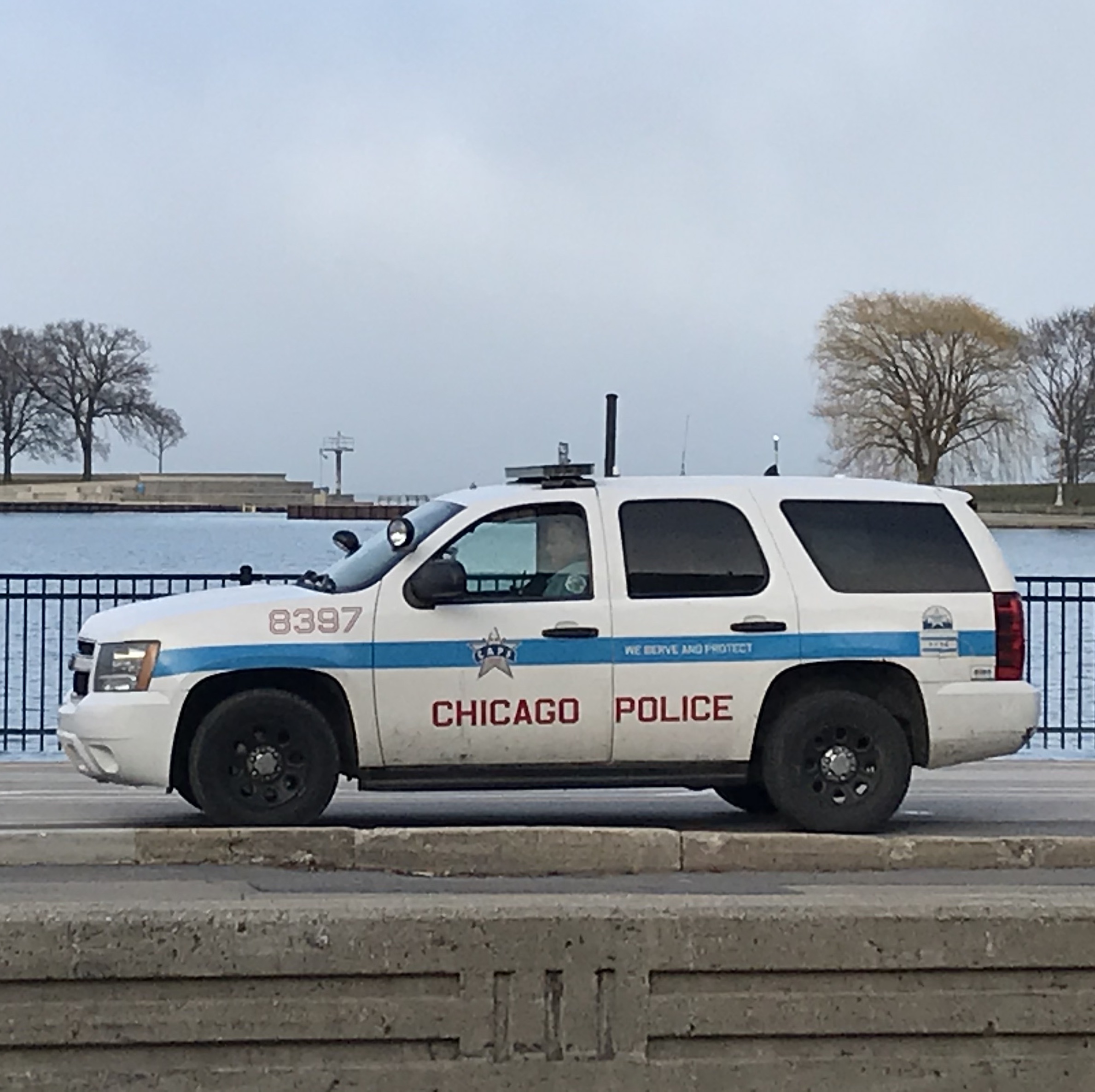Last week during warm, sunny weather, Chicagoans flocked to the lakefront and the city's most popular trails and promenades. In some cases conditions were too crowded for safety during a pandemic. And some residents, either due to lack of familiarity with social distancing rules, or just plain foolishness, were doing dangerous things like hanging out in large groups, playing contact sports, and letting their kids use playground equipment, which can spread COVID-19.
So it was understandable that Mayor Lori Lightfoot felt the need for swift, drastic action to address the safety threat. She had police shut down the entire lakefront park system, as well as the Chicago Riverwalk and The 606 elevated trail.
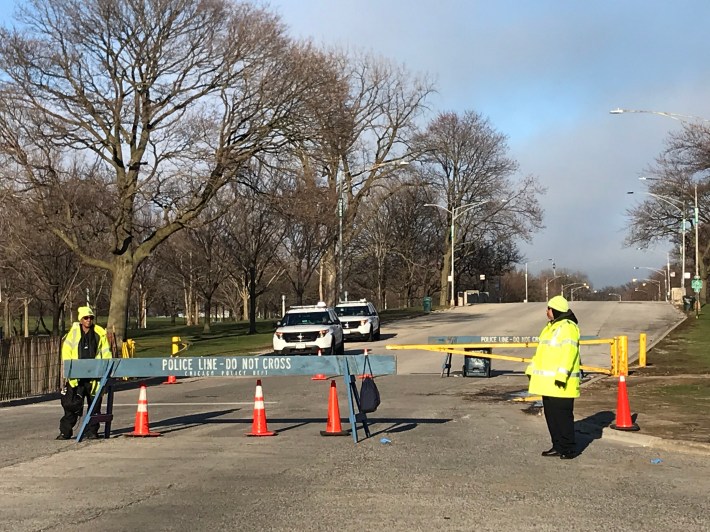
However, the mayor's plan to keep all of these transportation corridors and open spaces closed for the duration of Illinois' Stay at Home order is misguided and inequitable, and it's also expensive. As it stands, one or two police cars are stationed at all street entrances to the 18.5 mile Lakefront Trail, roughly every half mile or so, 24 hours a day, and that's not even counting the many other parks north or south of the trail. If we very conservatively estimate 20 officers total at any given time patrolling the lakefront, at the local average base police salary of $64.6K, that comes to $646 an hour, or $108,528 a week.
It's likely we could keep the lakefront and other parks open to allow for healthy transportation and recreation, while encouraging and enforcing social distancing, for the same cost or less. Posting signs about the Stay at Home guidelines would help. Playgrounds and other facilities that are unsafe to use during the pandemic should be fenced off.
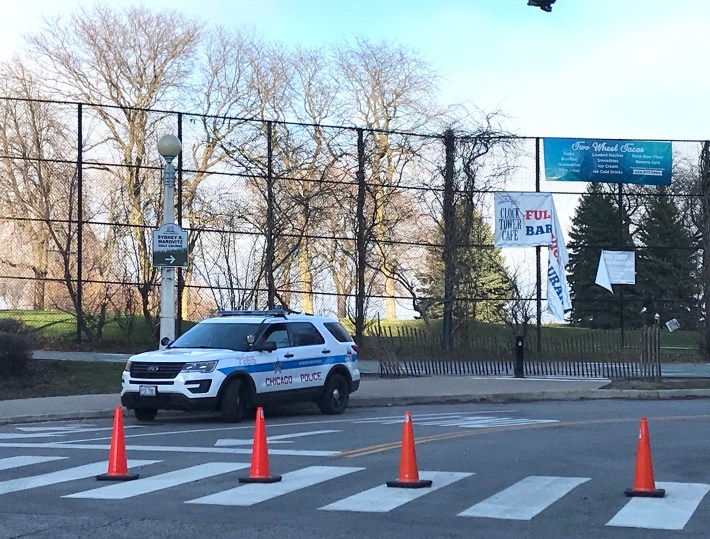
And it would make sense to have city workers stationed in parks and on trails to do outreach about the rules, disperse crowds, and break up soccer, basketball, and softball games. Using unarmed civilians rather than police to do this work would be cheaper, and would reduce the potential for confrontations to escalate into violence, as tragically happened on the very first day of Lightfoot's recent initiative to fight crime on the CTA by adding dozens of additional officers to the system.
But even if we assume that there's no effective way to safely keep the lakefront, the riverwalk, and The 606 open for casual recreation, they should be reopened for biking, since they're some of the only car-free commuting routes in the city. In particular, closing the Lakefront Trail is problematic. It's essentially an expressway for cyclists, the bike rider's equivalent of Lake Shore Drive. But since it's the only bikeway of its kind in the city, closing the shoreline path is like banishing drivers from LSD, the Kennedy, the Ike, the Stevenson, and the Dan Ryan all at once.
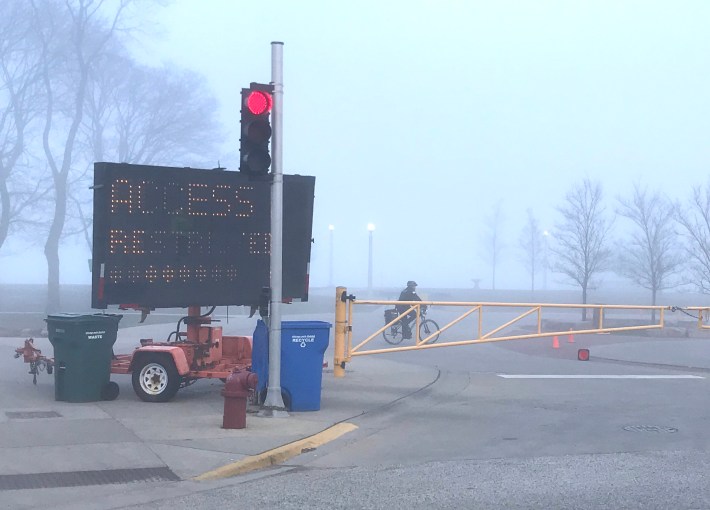
As such, a reasonable compromise would be to keep the trail open solely for bike commuters. Enforcement would work exactly like it does on the lakefront during non-pandemic times. The shoreline parks are closed between 11 p.m. and 6 a.m. but, per Chicago Park District rules, non-stop commuting is allowed during these hours. I.e. if you're hanging out on the lakeshore late at night, police order you to leave or write you a ticket, but if you're biking on the trail they let you be.
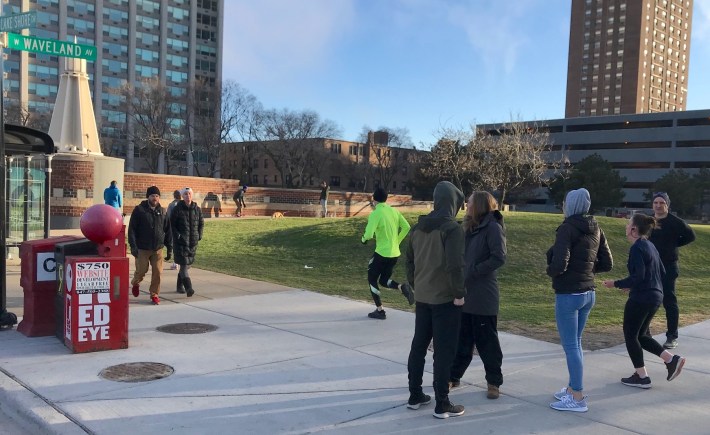
Architecture student Kyle Lucas, who works jobs considered “essential” under Illinois’ “Stay at Home” order, at a downtown hotel and a delivery market, has launched a petition asking the city to reopen the Lakefront Trail for commuting so that people like him can safely ride to work during the crisis. He's also asking for streets across the city to be open to car-free walking and biking to allow for socially-distanced transportation and recreation. That tactic has been successfully done during the pandemic in North American cities like New York, Philadelphia, and Calgary.
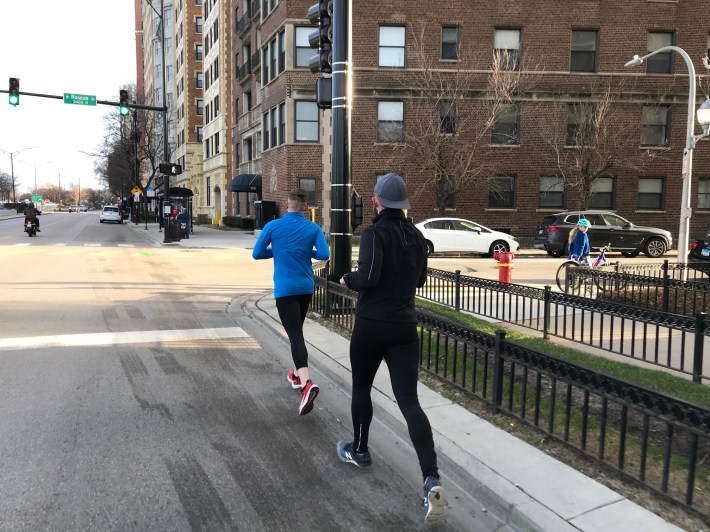
More than 475 people have signed Lucas' petition so far, and many of them are essential workers, including healthcare professionals. Here's what some of the signees had to say in the comments.
"I take the bike path daily [from Rogers Park] to work at the Shirley Ryan AbilityLab hospital. Now instead I have to take less safe streets and increase my time to get to work at the hospital. Please open the lake front path for essential workers." -- Bridget Fowler
"Most of my therapists and nurses at Northwestern [Medicine] and Shirley Ryan Ability Lab bike or walk to work. This restriction puts these front-line, essential... workers in harm's way from relying on mass transit, or taking unsafe routes. Please open these avenues for travel by these amazing health care professionals so they can continue caring for their patients." -- Richard Wallace
"I am a healthcare worker and I bike to work via the [Lakefront Trail]." -- Jillian MacDonald
"We use [the trail] to get to and from the hospital everyday." -- Adam Veneklase
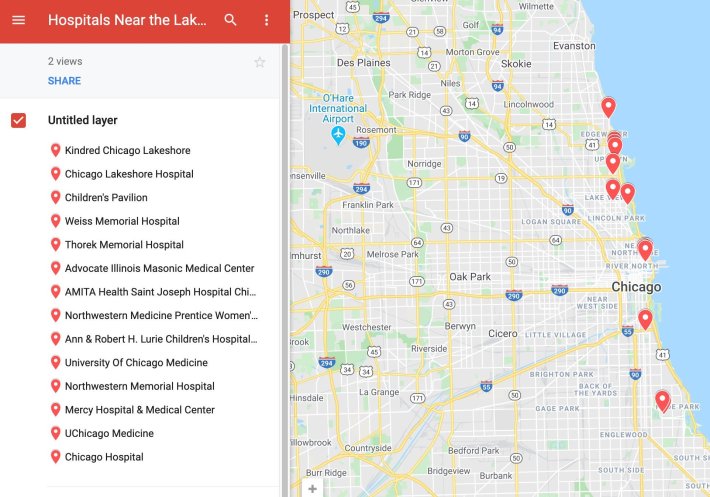
"CTA is dangerously crowded, yet the bike path is closed despite the fact that cyclists have to [socially distance] to ride. Lightfoot needs to understand the difference between a party at a crowded beach and a legitimate commuter route that is almost always underutilized, and reopen the safest option for transportation in town." -- Amy Coombs
"I work at the lakefront and live 1/2 block from the trail. It’s the safest way to get around." -- Ivan Sagel
"Hospitals need to focus on COVID-19 patients, not cyclists who have been hit by [drivers]. Watch what other, more progressive cities are doing around the world and let’s move into the future not go backwards into the past." --Kari Langmyhr
"I'm signing because being outside is very helpful for my mental health and the closure of the lakefront has made getting outside harder. And now the other parks are getting busier [and] less safe." -- Megan Robertson
"[Reopening the Lakefront Trail] is essential to this man's job." -- Eric Phillips
"Mayor Lightfoot, we love you, but unless you have a way for my friends to teleport to work, please reopen these bike paths for workers." -- Zachery Carter
Sign the petition to reopen the Lakefront Trail for commuting here.
Stuck for a safe commuting route while the Lakefront Trail is closed? Try the itineraries on our Low-Stress Lakefront Pandemic Cycling Route map.
Here are some tips on preventing the spread of COVID-19, and advice for Chicagoans on what to do if you think you may have been exposed to the virus.
